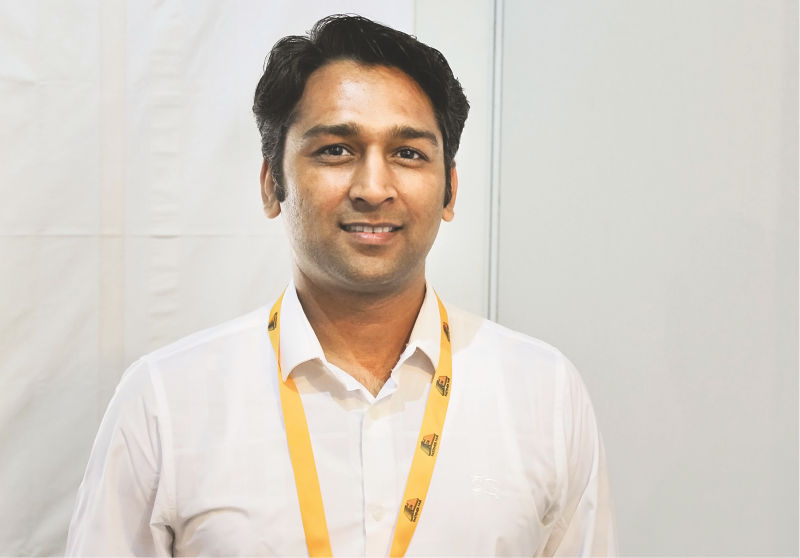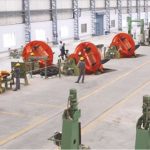Smarat Wires has swiftly carved a foothold for itself in making cold heading quality (CHQ) wires supplied mainly to automotive needs.

Samrat Wires, an associate unit of GITA GROUP, has a state-of-art wire drawing plant at Khopoli, Maharashtra, India. The plant has capacity to give output up to 15000 tonnes per annum of high quality CHQ and alloy steel wires.
Within a short period of its inception in 2005, the company has created a distinct niche in CHQ Wire segment in terms of the quality product at a very competitive price. Wire & Cable India recently had a brief interaction with Mr. Vinit Lohiya, Director, Samrat Wires Pvt. Ltd. wherein he discussed the product range, applications, and quality processes specific to the company. Excerpts:
Wire & Cable India: To start with, kindly brief us about your company.
Vinit Lohiya: Samrat Wires is an associate unit of Gita Group, which is into a lot of business activities including infrastructure, manufacturing, real estate, and retail. In manufacturing, apart from wires, it also makes concrete sleepers for railways, pipes and specials, metal casting, etc.
Establishment of Samrat Wires was an attempt of the group to diversify the product range by entering into automotive sector. We are majorly into manufacturing cold heading quality (CHQ) wires to be used in fasteners, ball bearings, etc. which predominantly go into automotive industry. Majority of our customers are suppliers to OEMs in the automotive sector.
WCI: What kind of technological infrastructure you have in place to produce CHQ wires?
VL: Right from the beginning, Samrat Wires has concentrated on having the best technology to churn out the best quality. We have now the world number one furnace, i.e. Speriodise Bell Annealing Electric Furnace from EBNER, Austria. This is hydrogen based annealing furnace and gives out decarb free bright surface, uniform grain size, and shorter cycles. The uniformity of annealing is very good here.
For quality testing, we have an elaborate lab laced with upset testing machines (UTMs), where all wire rods and annealed wires are checked for cracking. Besides, the lab is equipped with Spectrometer, hardness testing machines, metallurgical microscopes with camera, phosphate coating testing machines, and a fully equipped chemical lab within.
Besides, we have wire-drawing machines which can draw wires from 2 mm to 32 mm.
WCI: What is the capacity as of now?
VL: Presently, our annealing capacity is around 1000 tonne/month and overall capacity is about 1250 tonne/month.
WCI: Quality is a very crucial factor, especially when your product is going into automotive sector. What do you say?
VL: Yes, very much! Since automotive sector has laid out quite stringent norms on quality aspects for its suppliers, the same quality expectations percolates down to us as its suppliers are our customers and they expect high quality input material to meet those norms eventually.
In order to make a product on those quality benchmarks, we try to understand the requirement of our customers by actually knowing the products, processes and application where our wires are to be used, i.e. whether it’s a socket head, or a normal hex bolt, or a flange bolt, etc. Accordingly, we give them the wire by tweaking our annealing cycles based on such observations. We even suggest them the possible grades they can use in order to have better tool life at their end.
WCI: Any future plan?
VL: We are constantly looking at advancing our technology in order to give our customers the desired quality. We keep exploring the possibilities of technical collaborations with the European and Japanese companies to keep abreast of the latest technological trends globally. And, that’s one important thing among our plans.
Moreover, we are also planning to get into rolled products or shape rolled products, or all the products which basically are offshoots of annealing.
WCI: At last, tell us about your USPs.
VL: Of course, quality. And, that’s not possible only by having right equipments, but you have to have right processes too. The whole quality manual and quality check system we have at our factory, we are able to arrest the flaws and problems at the level where they arise and prohibiting their propagation forward in the processes in order to end up with a perfectly flawless product. That’s our USP.




